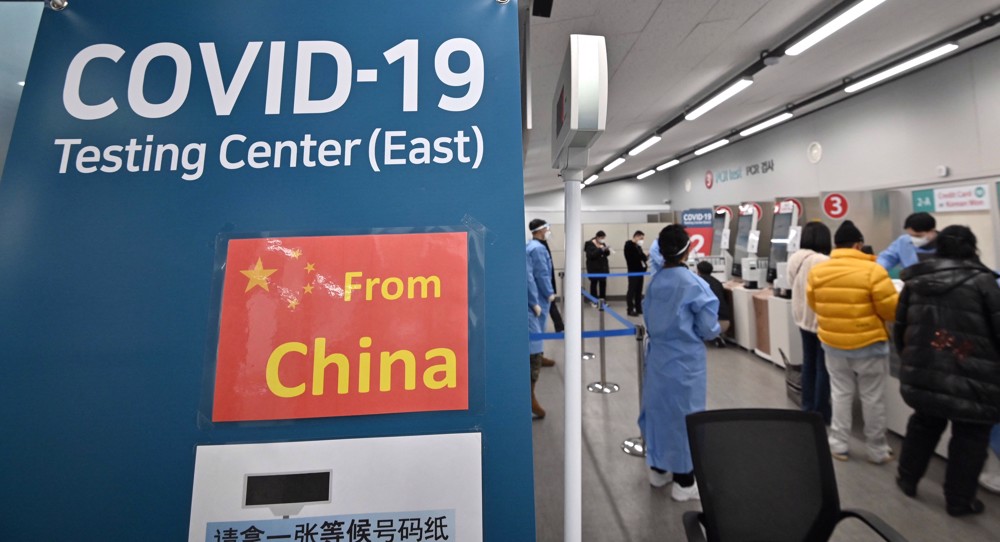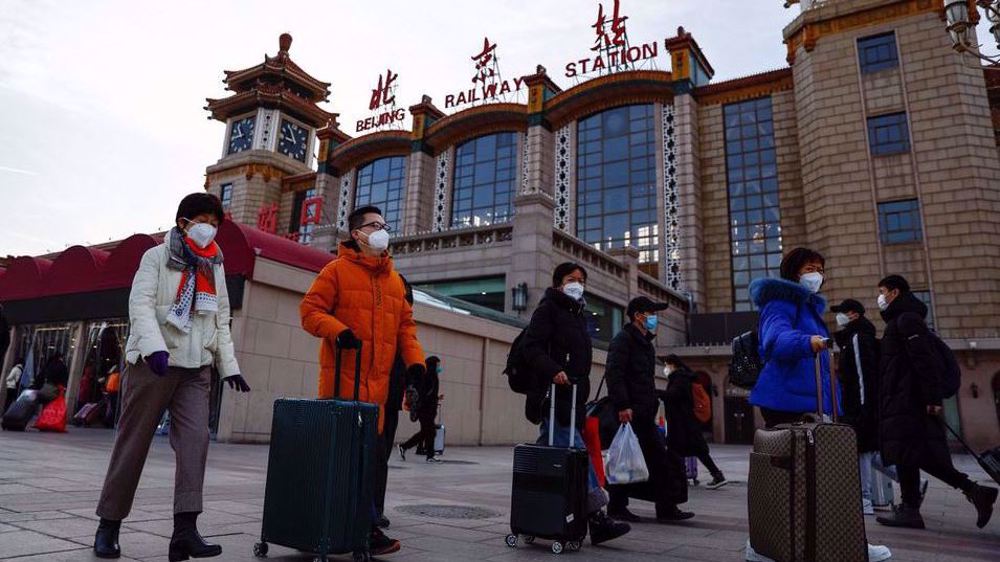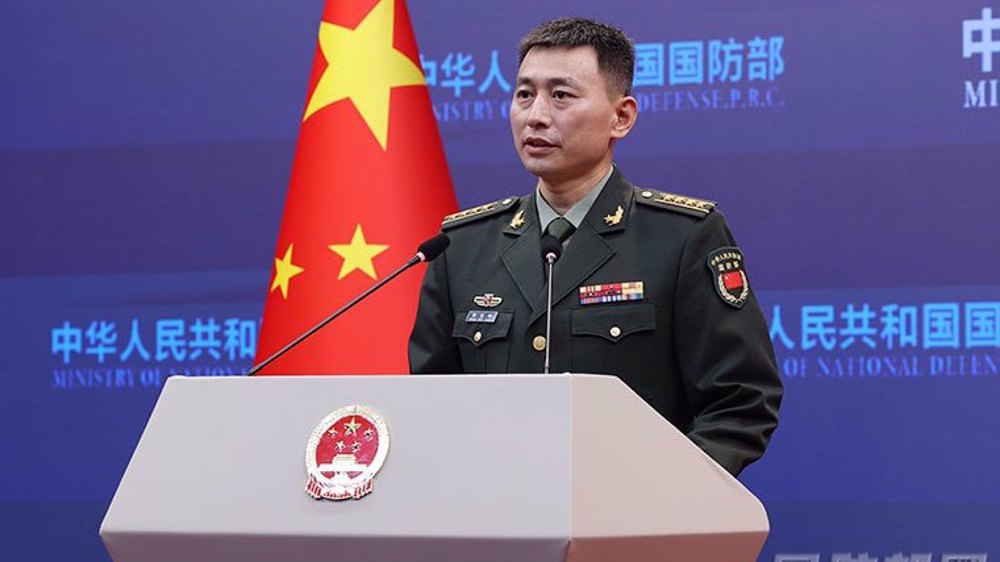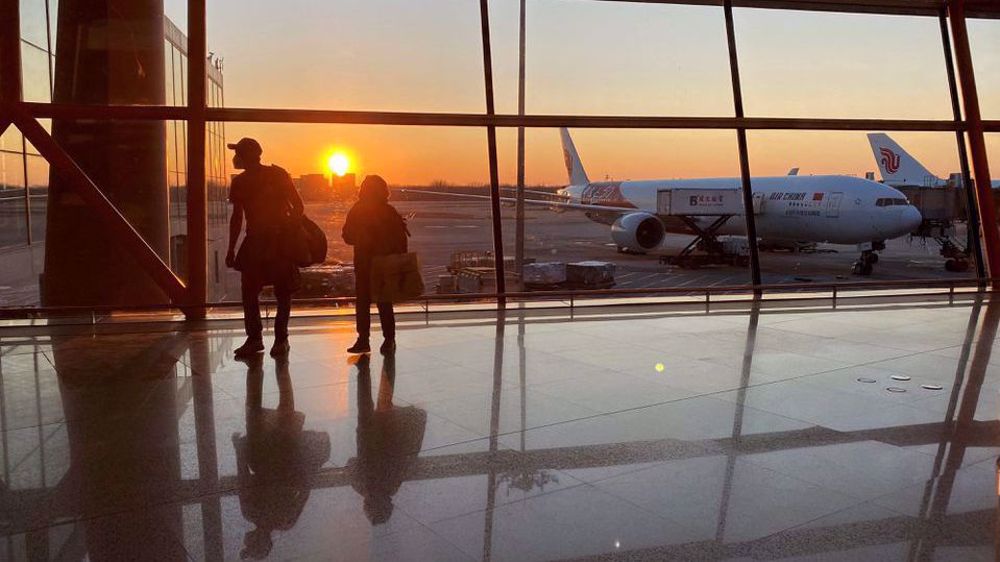COVID restrictions against Chinese travelers 'political manipulation:' Beijing
Beijing says the countries that have adopted COVID-19 measures against travelers from China are engaging in "political manipulation and discriminatory measures," warning that it would take "reciprocal countermeasures" against them.
China significantly eased its own strict border controls, allowing full international travel from this Sunday. In the wake of the reopening, many countries imposed restrictions on travelers from the mainland, though.
South Korea and Japan are among the many countries, including the United States, that require negative COVID-19 test results from those arriving from China.
China's Foreign Ministry spokesman Wang Wenbin described the foreign measures as "political manipulation," calling on the enforcer countries to instead "take appropriate measures based on science and facts... in order not to affect normal people-to-people exchanges."
"It's regrettable that a few countries ignore science and take discriminatory travel restrictions against China. We firmly oppose this kind of discrimination," Wang said.
He also warned that Beijing would "take reciprocal countermeasures" against relevant countries.
Beijing suspends short-term visas for South Koreans
In a retaliatory move, Beijing stopped issuing short-term visas to South Korean nationals and ceased granting visas to Japanese travelers on Tuesday.
"Chinese embassies and consulates in Korea will suspend the issuance of short-term visas for Korean citizens," Beijing's Embassy in Seoul said.
The measures, it said, would be "adjusted again in line with South Korea's removal of the discriminatory entry restrictions on China."
Seoul has limited its own issuance of short-term visas for Chinese nationals to public officials, diplomats, and those with crucial humanitarian and business purposes until the end of January.
All flights from China are also now required to land at South Korea's main Incheon International Airport. Visitors are being tested on arrival and are required to quarantine for a week if they test positive, authorities have said.
South Korea's Foreign Minister Park Jin defended the restrictive measures as being "in accordance with scientific evidence."
In a separate statement, the Foreign Ministry said Seoul had "communicated with China in advance" about the measures, adding that information was "shared transparently with the international community."
Wang, the Chinese Foreign Ministry spokesman, however, said that Beijing was "firmly opposed" to the restrictions.
For both 2019 and 2020, tourists from China accounted for the largest proportion of all foreign tourists visiting South Korea, making up 34.4 percent and 27.2 percent, respectively, according to Seoul's official data.
HTS rulers name al-Qaeda operative as Syria's new spy chief
Iran voices concern about rising insecurity, violence in Syria
VIDEO | Karachi sit-in amplifies nationwide call for justice for Parachinar victims
Iran strongly condemns Israeli bombing of Yemen's civilian infrastructure
VIDEO | Press TV's news headlines
VIDEO | Israel and Iran’s Nuclear Facilities?
At least three killed as Israel bombs Sana'a airport, power plant
Palestinian children freeze to death amid Israeli carnage in Gaza












 This makes it easy to access the Press TV website
This makes it easy to access the Press TV website